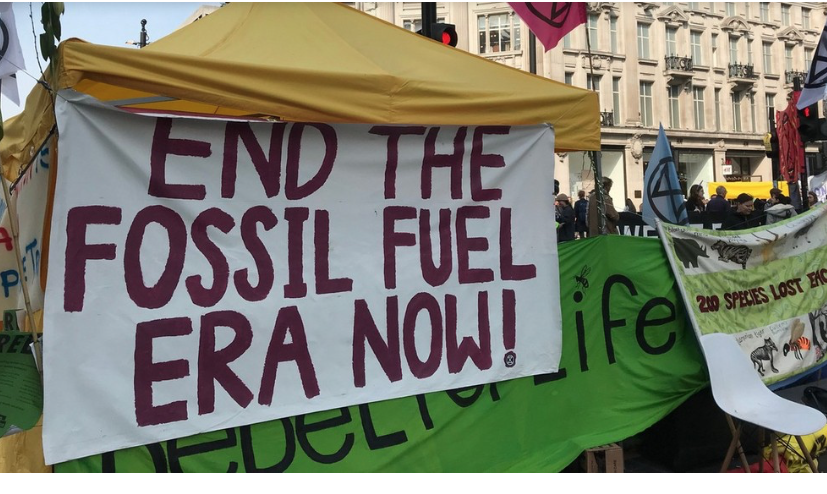CommentsFOSSIL FUEL POLITICS - A transition to renewable energy that is both fast and fair is eminently possible.
In the U.S. alone, we already have almost all the technologies we need for a 100 percent transition to clean energy by 2035, with much of that transition completed by 2030. With this existing technology, we could power every state and grid in the U.S. with clean, renewable, reliable energy. By now, it is widely understood that the obstacles we face are neither technical nor economic, but social and political. By invoking the Defense Production Act, the Biden administration is now poised to ensure a sustainable supply chain for the critical minerals we need to cut climate emissions, electrify our transportation sector and transition to clean energy. As we navigate what remains of this crucial, make-or-break decade of the 2020s, the administration must undertake every effort to ensure that in our transition to clean energy we do not shift the burden of energy production from one community to another.
For example, in increasing domestic production of critical minerals to bolster the clean energy economy, it is vital that we do not proceed under a business-as-usual scenario for a hardrock mining industry that has a long history of environmental harm and impacts to tribal and other vulnerable communities. Sustainable solutions to meeting domestic demand for renewables include updating our mining laws and regulations and incentivizing the development of a circular economy based on reusing and recycling critical materials. The mining industry must pay for the resources it takes out of public lands and clean up the toxic mess it leaves. Any mining that does occur must be safe, sustainable and as pro-worker as possible. With most untapped U.S. critical minerals located within 35 miles of Indigenous communities, the clean energy transition must occur with meaningful tribal consultation, Indigenous resource protections, and seek to achieve the free, prior and informed consent of impact communities.
In addition, making this critical time of transition fast and fair while also increasing new fossil-fuel infrastructure is not possible. The details behind a central tenet of U.S. and the European Commission's joint Task Force— that the U.S. is going to provide additional liquefied natural gas (LNG) to the EU—remain vague if not baffling. Sending and rerouting existing LNG supply to Europe is reasonable and humane. But building out new LNG infrastructure is the wrong choice—it can be neither fast nor fair.
First, it isn't logistically possible to build new infrastructure rapidly enough to help Europe ditch Russian oil and gas by 2027 or reduce all exported gas from 2030. Building new LNG infrastructure takes years and billions of dollars, and we can't afford to waste time and money on too-little-too-late projects that would become stranded assets as Europe moves aggressively and rapidly to renewables.
Second, investing in new fossil fuel infrastructure not only risks stranded assets, energy and geopolitical insecurity, as well as worsening effects of climate change, it, too, would shift the burden of energy production to vulnerable communities. Many communities my organization Earth justice represents are fighting to stop new LNG and oil export projects that threaten their health, safety and livelihood. One project near Corpus Christi, Texas recently received permits to add seven new units, or "trains" to its exiting three liquefaction units. Such an expansion would add thousands of tons per year of ozone-forming nitrogen dioxide, associated with respiratory issues, and nearly 1000 tons of volatile organic compounds per year, associated with headaches, organ damage, damage to the nervous system and certain cancers. All this pollution is on top of expanding clusters of other nearby oil and gas export and petrochemicals facilities, as the same threat is facing other costal communities like Port Arthur, Brownsville and Lake Charles. The combined buildout creates devastating cumulative health and environmental threats.
Furthermore, spending billions on new and doomed fossil fuel build-out would do nothing to shield us from volatile global oil markets, either. It is our failure to get off oil and gas that is making us pay the price at the pumps as the oil and gas industries profit from yet another humanitarian crisis abroad. It is our failure to get off oil and gas that means American families remain susceptible to industry's profiteering and price-gouging, creating fear, anger and financial instability for families still reeling from an ongoing pandemic. The U.S. simply cannot ensure a fast and fair transition to clean energy if that transition includes new fossil fuel infrastructure.
Predictably, however, as a tragedy unfolds in Ukraine, and to guarantee unprecedented profits for shareholders, industry has been peddling the false narrative that "bridging" fossil fuels and transitioning to renewables slowly is the only way forward. Their hundreds of billions in profits have funded well documented disinformation campaigns to suppress the truth about climate change and now they are underwriting an equally pervasive effort to dissuade any investment in proven, clean-energy solutions. Deploying and scaling clean energy technology now will create thousands of jobs, boost local economies, save money for consumers, reduce unhealthy emissions and put Russia President Vladimir Putin out of business— now.
That there will be more crises linked to our dependence upon and vulnerability to fossil fuels is certain—climate change conditions make the world a more dangerous place and undermine military operational readiness. Global and U.S. military leaders have repeatedly and increasingly stated this. While we provide immediate assistance to Europe, rapid U.S. investment in a fast and fair transition to clean energy, with the urgency of war-time production demands, is the long-term path forward. Our collective transformation must start now. Entrenching fossil fuel dependence is the wrong choice. This moment is critical, and the stakes are high.
(Abigail Dillen is the president of Earthjustice, a nonprofit public interest environmental law organization. This article was published in CommonDreams.)
















